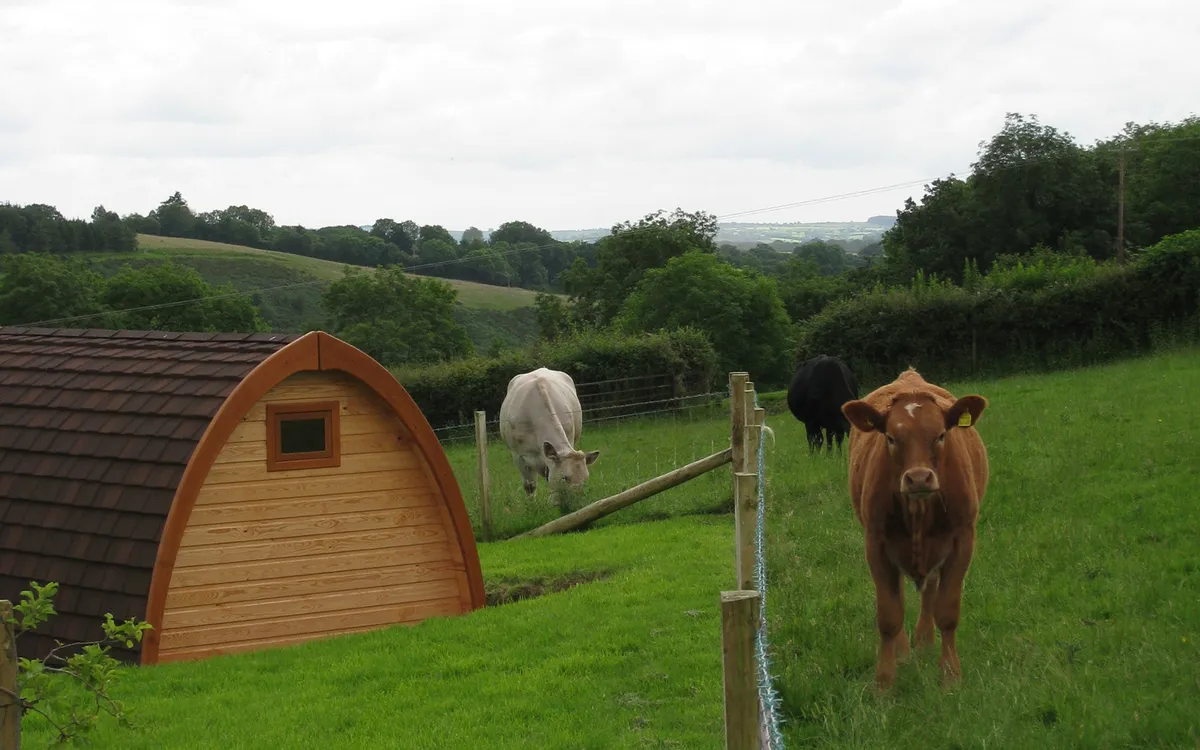Live the good life and escape to the countryside. Here is our guide on working in the countryside with different career ideas, plus the pros and cons of each one.
1
Run a B&B
Buying a bigger house can be one of the most enticing aspects of moving from the town to the country. This opens up the prospect of letting rooms to paying guests. But don’t be fooled – running a B&B isn’t simply about cooking up a bit of bacon in the morning. It’s hard work and there are plenty of rules and regulations, so go on a training course.
- Pros: Flexibility – you can let rooms all week or at weekends only.
- Cons: Very hard work, early starts and there could be awkward guests.
Useful resources
www.bandbtraining.co.uk and www.startabedandbreakfast.co.uk
Further reading: Just Six Guests: How to Set Up and Run a Small Bed & Breakfast by Helen Jackman (£5.99, How To Books Ltd).

2
Set up a childminding business
Many rural areas have a shortage of childcare provision, and as a registered childminder, you can provide childcare to cater for parents that work office hours.
- Pros: It’s flexible, rewarding and allows you to look after your own children at home.
- Cons: You need qualifications and there is a cap on pay, as there is a limit on the number of children you can look after.
Useful resources
Further info: www.ncma.org.uk

3
Become a therapist
From counselling to acupuncture or massage therapy, many urban and rural dwellers are learning new skills and ditching their old jobs to set up new businesses.
- Pros: You can work from home – or those of your clients. You’ll get a great deal of satisfaction from providing a useful service to local people.
- Cons: Building a client base takes time, lots of PR and, best of all, word of mouth.
4
Consult
Use the expertise you’ve built up over your career to advise others in your industry. If you market your skills well, this can be a lucrative way to pull in a decent salary, but make sure there’s a demand for the service you’re hoping to offer. Setting up as a limited company will be complex but possibly more tax efficient.
- Pros: You’re your own boss.
- Cons: There can be a time lag before you’re pulling any money in.
Further info: For limited company advice, go to www.hmrc.gov.uk
5
Manage a National Trust property
If you’ve ever fancied becoming lord or lady of the manor but can’t afford a country pile, then managing one of the National Trust’s hundreds of properties is a great way to live the dream. House managers live on site and lead a team of specialist staff.
- Pros: You get free run of the house/castle, plus a respectable salary.
- Cons: As the manager of a historic house, you can end up working long hours and you’re always on call.
Further info: www.ntjobs.org.uk

6
Have lots of small jobs
In remote and isolated communities, many people work a patchwork of jobs – a few hours pulling pints here, a few hours as a receptionist there, plus a few hours doing something better paid related to their past professional life, such as the law or teaching.
- Pros: Interesting variety and if one job disappears or is seasonal, you’ll have others on the go to tide you over.
- Cons: You’ll need to keep a careful account of your various income streams for tax purposes. Your free time may become limited.
Further info:
www.hmrc.gov.uk/selfemployed

7
Buy and rejuvenate the village shop
Many village shops are struggling in today’s financial climate, but those that have ditched the ancient tins of oxtail soup and replaced them with locally grown produce are thriving. For many people in the country, the village shop is a hub that offers a range of services that may not be found for miles, so you could become a valuable part of the community.
- Pros: Get it right and you can help to reinvigorate your local community.
- Cons: Get it wrong and you can lose all the time and money invested.
Further info: www.communityfirst.org.uk

8
Become a tutor
If you have a degree or academic expertise in a subject, why not advertise your services as a tutor? Hourly rates range from £15-£30 for a subject that’s in demand, particularly if you have teaching or journalistic experience.
- Pros: It can be flexible, because tutoring is usually offered in the evenings or
at weekends. - Cons: You’ll need to research different exam board requirements and marking criteria before you start.
Further info: www.hometutorsdirectory.co.uk and www.teacherstoyourhome.co.uk/tutoring-jobs
9
Retrain in a new field
From conservation to land management there is a wide variety of jobs working outdoors. It's never too late to retrain in a new field so why not explore some of the options?

10
Do seasonal agricultural work
This could include working at a local vineyard, helping process juice at a commercial orchard or overseeing a farmer’s pick your own business for a couple of months a year.
- Pros: Physical work in the great outdoors that doesn’t require long-term commitment and could lead to other farm-based jobs.
- Cons: Long hours, often poorly paid. Usually seasonal so you’ll have to find something else to do during the rest of the year.
More info: Ask stallholders at nearby farmers’ markets.
11
House, horse, dog, cat and chicken sitting
People who live in the country often have pets and livestock that need looking after should they go away. In addition, a family that lives in a particularly valuable property won’t want to simply set the alarm, lock the door and head for the airport. There are agencies that specialise in placing house and pet sitters.
- Pros: Flexible and varied placements.
- Cons: Only works if you’re confident with pets and bigger livestock, and happy to live away from home for short periods.
Further info: www.homesitters.co.uk/

12
Take in weekday lodgers
There are plenty of professionals that work away from home who don’t want to spend their evenings in an anonymous hotel chain – your country abode would be a nicer and cheaper place for them to stay.
- Pros: Under the government’s Rent a Room scheme, you can earn up to £4,250 tax free per year on top of your personal allowance.
- Cons: This only works if your house is within easy reach of a reasonably sized town or city or you’re near a big employer.
Further info: www.bedandfed.co.uk, www.airbnb.co.uk and www.mondaytofriday.com
